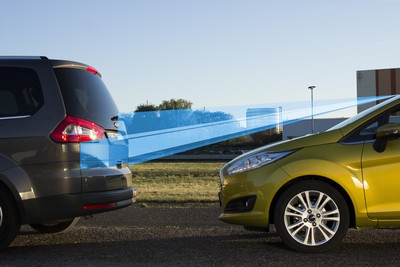Coveted 5-star safety ratings may soon be awarded only to those cars that can avoid or reduce the impact of a crash, as Autonomous Emergency Braking (AEB) marks the way forward for future road safety, according to Thatcham Research.
Euro NCAP has released data on AEB crash tests, collected from approved test centres around Europe.
Half of the tests were carried out by Thatcham, the British motor insurers' automotive research facility.
Thatcham has been researching and testing Autonomous Emergency Braking (AEB) systems on behalf of insurers for the last three years and has carried out hundreds of tests on a wide range of new vehicles.
Peter Shaw, chief executive of Thatcham Research, said: "The vast majority of major vehicle manufacturers are already providing AEB technologies on their vehicles and such is their effectiveness, we are delighted that international safety body Euro NCAP will incorporate the Thatcham led test as part of their overall vehicle safety standard in 2014.
“We expect that, by 2016, cars will find it increasingly difficult to achieve a 5-star rating unless they have this powerful safety measure. UK insurers are already offering favourable insurance groupings on vehicles fitted with AEB as standard - a clear sign of its effectiveness.
"The evidence from our testing is undeniable, and combined with a growing body of real world research and evidence we firmly believe that AEB and other ADAS (Advanced Driver Assist Systems) have a critical role to play in avoiding both common low-speed bumps that can cause injuries such as whiplash, and mitigating injuries and fatalities from medium-speed crashes.”
Thatcham carried out AEB testing on the following vehicles:
Ford Focus (Active City Stop)
Volvo XC60 (City Safety)
Volvo V40 (City Safety + Collision Warning with Full Autobrake)
Mercedes E-Class (Pre-Safe Brake)


















Login to comment
Comments
No comments have been made yet.